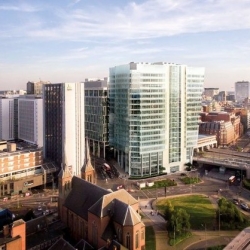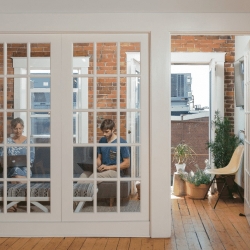To provide the best experiences, we use technologies like cookies to store and/or access device information. Consenting to these technologies will allow us to process data such as browsing behaviour or unique IDs on this site. Not consenting or withdrawing consent, may adversely affect certain features and functions.
The technical storage or access is strictly necessary for the legitimate purpose of enabling the use of a specific service explicitly requested by the subscriber or user, or for the sole purpose of carrying out the transmission of a communication over an electronic communications network.
The technical storage or access is necessary for the legitimate purpose of storing preferences that are not requested by the subscriber or user.
The technical storage or access that is used exclusively for statistical purposes.
The technical storage or access that is used exclusively for anonymous statistical purposes. Without a subpoena, voluntary compliance on the part of your Internet Service Provider, or additional records from a third party, information stored or retrieved for this purpose alone cannot usually be used to identify you.
The technical storage or access is required to create user profiles to send advertising, or to track the user on a website or across several websites for similar marketing purposes.
 The vast majority of UK office workers neither want to continue working remotely after Covid-19 restrictions lift nor make a full return to the 9 to 5. This is despite the fact that many admit that remote work has reduced their productivity. Those are the main claims of new research released by Locatee. Carried out by YouGov, the research claims to provide insight into UK office workers’ attitudes towards productivity, job security, and the prospect of further Covid-19 restrictions. (more…)
The vast majority of UK office workers neither want to continue working remotely after Covid-19 restrictions lift nor make a full return to the 9 to 5. This is despite the fact that many admit that remote work has reduced their productivity. Those are the main claims of new research released by Locatee. Carried out by YouGov, the research claims to provide insight into UK office workers’ attitudes towards productivity, job security, and the prospect of further Covid-19 restrictions. (more…)








 Independent property, construction and infrastructure consultancy
Independent property, construction and infrastructure consultancy 








 Employees enjoy working in a coworking space, claims a recent
Employees enjoy working in a coworking space, claims a recent 
















September 23, 2020
The stage is set for the next phase of working life
by Mark Eltringham • Comment, Flexible working, Technology, Wellbeing, Working lives